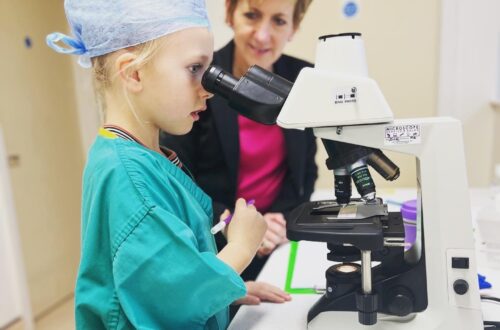
SKO Law – our thoughts on the latest Law reform
Are we one step closer to the new surrogacy law in the UK? The much anticipated, five years in the making joint Report of the Law Commission of England and Wales and the Scottish Law Commission was published in March 2023. This has been dubbed “Building families through surrogacy: a new law”. The report provides recommendations for reform of the law on surrogacy and legal parentage in respect of a child born via surrogacy.
We have been discussing potential surrogacy law reform for years. I’ve lost count of the times that those considering or already using surrogacy to form a family refer to the “change in law”. So, for those asking that question, what does the report do? If the law is changing – when and how?
Current law
Our current law in the UK comes from the Human Fertilisation and Embryology Act 2008. It has been tweaked over the last fifteen years, and there has also been caselaw during that time which has developed the interpretation of the Act. The basic tenets of parentage remain as they have been since we first introduced law to deal with surrogacy though, more than thirty years ago. The current law provides that the surrogate is the legal mother of any child born as a result of a surrogacy arrangement – whether in England and Wales or Scotland (they are separate jurisdictions, and each have their own legal systems – that is for another blog!). The surrogate’s spouse/civil partner (if there is one) is the other parent. In some circumstances, if there is no spouse/civil partner, it may be that an intended parent is the legal father from birth. However, often neither (or only one) of the intended parents will be a legal parent at birth. Intended parents must apply for a Parental Order to establish their legal parental status in respect of the child, and to extinguish the surrogate/spouse’s parental status.
The court needs to be satisfied of various criteria in terms of s54 or 54A of the 2008 Act before it can grant the order. Although the courts in England and Wales have applied a generous interpretation of these criteria in recent years – for example extending discretion to allow Parental Orders to be successfully applied for outwith the six-month timescale provided for in the legislation, there are still various hurdles that need to be clambered over by intended parents who need to have their parentage recognised. The current law still provides that the surrogate (and any spouse) must consent to the Parental Order (and the courts have, so far, declined to try and soften that requirement). If consent is not given, a Parental Order cannot be obtained and the only way that the intended parents could acquire the legal status of parent would be by adopting the child. Another criteria in the current law is the need for there to be a genetic connection between the child and at least one of the intended parents and the proposals for reform don’t propose that change.

Proposed reform
The proposed reform would see a new pathway for legal parenthood for domestic surrogacy which will be overseen by regulated, non-profit, surrogacy organisations. It incorporates screening and safeguarding checks, all parties having legal advice and counselling. If the pathway criteria are satisfied, the intended parents would become the legal parents from birth (subject to the surrogate having a short period to withdraw her consent). Any withdrawal of consent on the part of the surrogate beyond 6 weeks after the birth would require an application to the court. Crucially, even if consent is withdrawn by the surrogate, under the Law Commissions’ proposals, the court would still be able to make a Parental Order if it is in the best interest of the child. For intended parents who are able to use domestic surrogacy, these proposed changes, if they become law, would certainly be an improvement on the current law.
It is also proposed that a surrogacy register be created where details of the surrogate and intended parents be held and which can be later accessed by the child born via surrogacy. The regulation of surrogacy arrangements with pre-conception safeguards is also recommended as well as the provision of additional employment rights to intended parents.
The recommendations don’t include a move away from the prohibition of commercial surrogacy, nor to change the existing position which is that surrogacy arrangements are not enforceable.
What is recommended is greater clarity – and new rules – on the payments that can be made to the surrogate. It is proposed that there will be a category of ‘permitted payments’ which are designed to ensure that the surrogate is not left financially worse off as a result of the surrogacy – things like payments to cover lost earnings, medical and wellbeing costs. The proposals then recommend that other payments be prohibited – like money paid for carrying the child and compensatory payments.
Missed Opportunities
The proposals do not recommend a complete overhaul of the current regime as many had hoped for. There are some significant gaps – areas where families and practitioners are dealing with the consequences of a system that is unpredictable, costly and hugely stressful, which are not addressed by the proposals, most notably where there is an ISA (International Surrogacy Arrangement): there are no significant changes to the route which requires to be undertaken by intended parents when their baby was born abroad, and those are often some of the most difficult cases that the courts are having to try and deal with now. The proposed reform doesn’t propose a route to recognise parentage of intended parents from birth in those circumstances and a parental order would still be required. Some of the changes proposed would apply to ISA’s, for example that the court would be able to dispense with the surrogate’s consent in circumstances where it is in the best interests of the child. It remains to be seen whether the proposed changes to payments will help in ISA’s- it’s possible that the new rules will make an already difficult process, more difficult.
The future After five years of waiting, and a report that has not been universally welcomed, it is entirely unclear if the proposed changes will make their way into law at all. The final report (which includes a draft bill to change the law) has gone to the UK Government for review and consideration. The expectation that an interim response was expected by the Autumn of 2023, with a full response within twelve months of the publication of the Report at the end of March 2023. In a recent answer to a question about what steps the Government were taking ‘to prevent the commodification of surrogacy’, Maria Caulfield, Parliamentary Under Secretary of State (Department for Business and Trade) (Minister for Women), responded, ‘The Law Commissions of England & Wales and Scotland published a report and draft bill of their review of the surrogacy legislation on 29 March 2023. The report’s recommendations reiterate that surrogacy should continue to operate in the UK on an altruistic rather than a commercial basis.
The Government is considering the report and will publish a response in due course.’ On 12th June 2023 Ms Caulfield was invited to give a timeline for the Government’s response and her reply on 20th June 2023 was simply a repeat that the report was being considered and intended to publish a response ‘in due course’.

There are no guarantees that the Government will proceed with a draft bill and the legislative process thereafter will take time, even if there is general consensus on the need for the reform and then the direction that that reform should take.
The current political landscape is one where the reform of law surrounding surrogacy may not be seen as a priority, not least when it is likely to be controversial and in a climate where, arguably, opinions in many parts of the world are hardening against, rather than softening towards, surrogacy as a way to build a family. Many voices will continue to push the case for reform, however the concern now is who is going to champion reform in the political sphere – when this is an issue that does not fall within conventional party boundaries, as can be readily seen from questions in Westminster on the subject of surrogacy.
If no-one grasps the baton in the near future, the danger is that the Report – which involved careful consultation, comprehensive thought and recommendations for a way forward that would make the position better than it currently is for all involved in the surrogacy process, but which was still realistic and feasible, given the social and political environment we are in – will come to naught.
Our job at the moment is to support, and manage the expectations of, the individuals and families who are relying on surrogacy to build their families, to educate our legislators about the realities of what the current law means for those individuals and families, and to continue to advocate for time to be given to a grown-up consideration of reform in this area of law. Meantime, the current law and regime remains in place and may do so for some time.





